LATEST INSIGHTS
Your Present Location: LATEST INSIGHTS-
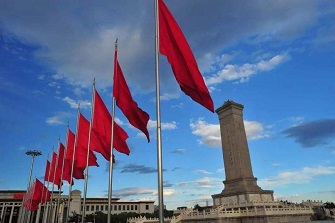
William Jones: “Right to Develop”—Center of Human Rights
The release of China’s White Paper on Human Rights comes at an important time when the world has been witnessing to the recent violence in Hong Kong, where many of the activists are claiming that their lawful rights were being endangered by a proposed draft law for extraditing criminals. In the course of this turmoil, time and again the claims were made that China was a “human rights violator” and this by the very people who were shutting down the Hong Kong economy and making it impossible for many Hong Kongers to even learn their livelihood.
2019-09-29 -
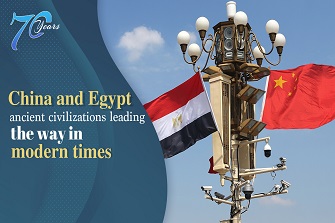
Hisham El-Zimaity: China and Egypt – ancient civilizations leading the way in modern times
To mark the PRC's 70th founding anniversary, CGTN has introduced a special series "70 Years through Foreigners' Eyes." In the fourth episode, Hisham El-Zimaity, former Assistant Foreign Minister of Egypt and Non-Resident Senior Fellow at Chongyang Institute for Financial Studies, Renmin University of China, shared his views on lessons from China's rapid development and Egypt's relationship with China.
2019-09-27 -
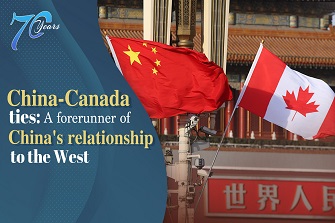
Jean-Guy Carrier: China-Canada ties, A forerunner of China's relationship to the West
To mark the PRC's 70th founding anniversary, CGTN has introduced a special series "70 Years through Foreigners' Eyes." In the third episode, Jean-Guy Carrier, non-resident senior fellow of Chongyang Institute for Financial Studies, Renmin University of China (RDCY); executive chairman, Silk Road Chamber of International Commerce (SRCIC) , shares his views on Canada's historic relations with China.
2019-09-27 -

William Jones: Don’t Draw the Wrong Conclusions from “American Factory”
The recently released documentary film “American Factory” by Julia Reichert and Steven Bognar is another one in the genre of films that are aimed at depicting the life and the trials of the American working class and the travails of modern capitalism. Reichert has done a number of these films, but “American Factory” has gained a greater amount of notoriety because it depicts a Fuyao auto-glass factory in Ohio which was set up by a Chinese entrepreneur, Cao Dewang, on a site of a closed General Motors assembly plant, hiring many of the American workers who had been laid off from their GM jobs after the 2008 financial crisis.
2019-09-27 -
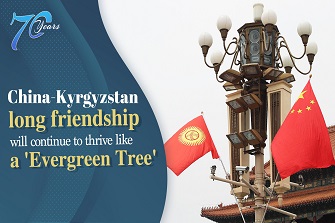
Djoomart Otorbaev: China-Kyrgyzstan long friendship will continue to thrive like an 'Evergreen Tree'
To mark the PRC's 70th founding anniversary, CGTN has introduced a special series "70 Years through Foreigners' Eyes." In the second episode, Djoomart Otorbaev, former Prime Minister of the Kyrgyz Republic and non-resident senior fellow at the Chongyang Institute for Financial Studies, Renmin University of China, shared his views on China's achievement in the past seven decades and Kyrgyzstan’s future relationship with China.
2019-09-26 -
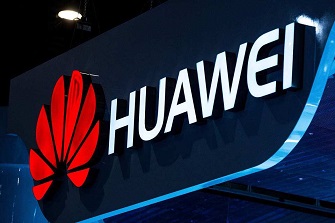
Ding Gang: How to grow in China, Tech it from Huawei
I visited the headquarters of Chinese tech titan Huawei in Shenzhen, South China's Guangdong Province, Tuesday afternoon with journalists from the US and Germany. During the four hours of interview, the words of former 3Com Corporation CEO Bruce Claflin kept coming to my mind that it would also be an amazing story if Huawei founder Ren Zhengfei's success took place in the US. The Chinese tech giant's story began in Shenzhen in the context of the resurgent Asian nation's reform and opening-up. A company like Huawei could only emerge in a market economy which offered favorable conditions.
2019-09-26 -
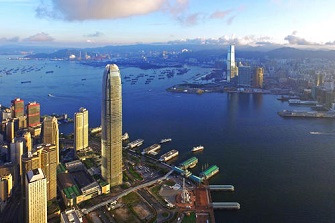
MOF announces $702m of treasury bonds in Hong Kong
China's Ministry of Finance (MOF) announced on Wednesday the successful issuance of 5 billion yuan ($701.77 million) in treasury bonds in Hong Kong. The MOF plans to issue a total of 15 billion yuan worth of bonds in Hong Kong this year. The issuance demonstrated the strong support of the central government to Hong Kong's status as a global financial hub, in this case, as the center for the global offshore yuan business, despite persistent political unrest in the city.
2019-09-26 -
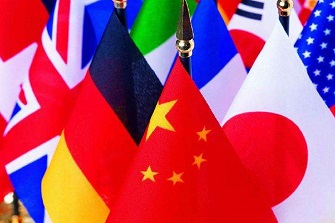
Diplomacy shines 70 years on
The People's Daily, the flagship newspaper of the Communist Party of China (CPC), published an article written by Chinese State Councilor and Foreign Minister Wang Yi on Monday which summarized China's diplomatic achievements in the 70 years since the founding of the People's Republic of China, and also introduced China's diplomatic goals in the new era. Wang said the Chinese nation has achieved a tremendous transformation in the past 70 years - it has stood up, grown rich, and is becoming strong, and China has also continuously made significant contributions to the world.
2019-09-25 -
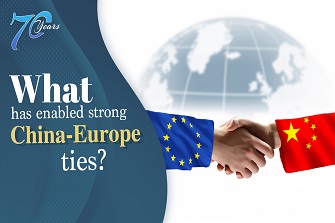
Antonino Villafranca: What has enabled strong China-Europe ties?
China's skyrocketing economy is the result of policies embraced by its leaders and of the strong will of its people. However, these alone would not be enough to enable China's economic miracle. China's success is also made possible by the country integrating itself into the international economy, the system inaugurated by western countries after the Second World War and out of which China emerged as a flourishing major world power.
2019-09-25 -
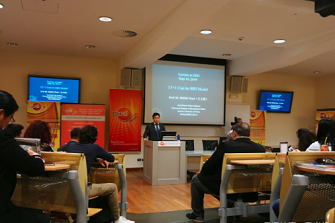
Wang Yiwei: Why West has begun to learn from China
"Seek knowledge even if you have to go as far as China" is a popular adage in the Muslim world. It has its origin in the hadith - traditions related to Prophet Muhammad, the founder of Islam. Now the West has begun to take the same road. Why should the West seek knowledge from China? The answer lies in the clear comparison between the two: The West is in relative decline compared to its previous glory, while China enjoys stability and development. With comprehensive reforms, China has proposed the Belt and Road Initiative (BRI) and the concept of community of shared future for mankind.
2019-09-25 -
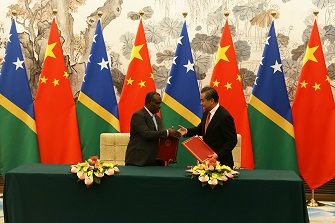
Zhao Minghao: Pacific island countries caught in America's China policy
Two island countries in the Pacific-the Solomon Islands and Kiribati- recently severed diplomatic ties with Taiwan. Such moves have been opposed by the U.S. and it even sent a navy ship to sail through the Taiwan Strait to advocate for "free navigation". But Washington's interference on the sovereign states' decisions makes no sense. Manasseh Sogavare, the Prime Minister of the Solomon Islands, said that the U.S. threatened to cut aid if the Solomon Islands decided to cut ties with Taiwan.
2019-09-24 -
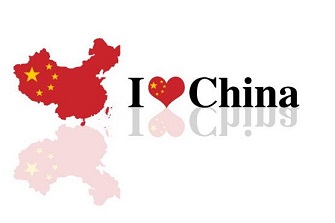
Wang Wen: How Trump makes Chinese love China more
"Is the US a beautiful country?" My son, a pupil, suddenly raised an odd question.
"Not necessarily!" I answered. "If you mean landscape, then yes - many places of the US are quite beautiful. But if you mean the society or politics, the answer is 'not necessarily attractive.'"
"Then why do we translate the US as meiguo in Putonghua?" he asked. Mei literally means beautiful and guo means country.2019-09-24 -
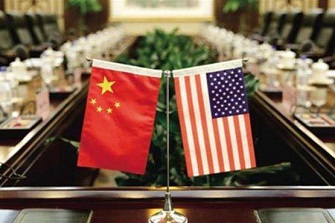
China, US show goodwill ahead of new talks
Recent engagement between China and the US on trade practices is creating favorable conditions to bring them back to the negotiating table, which also shows that they are trying to meet each other halfway and are making efforts to resolve issues of mutual concern, experts said on Friday. The face-to-face talks between deputy trade negotiators in Washington, which resumed after nearly two months, have created a foundation for the next round of talks in October, they noted.
2019-09-23 -
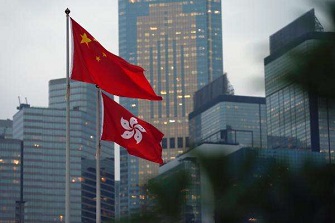
William Jones: U.S. legislators grovel before Hong Kong 'activists'
The high point of this week's U.S. trip by the Hong Kong "activists," who have been leading elements in what has been months of destruction of the economy and the infrastructure of Hong Kong and has almost brought business and tourism to a virtual halt, was a "hearing" on Capitol Hill sponsored by the Congressional-Executive Commission on China (CEEC). The CEEC was set up as a "watchdog" on Chinese activity when the Clinton administration succeeded in getting Congress to grant Permanent Trade Status passed for China in 1999, a prerequisite for China's entry into the WTO. So hearings in the CEEC always involve a clear anti-China bias.
2019-09-23 -
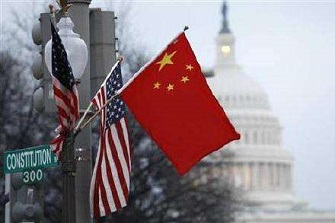
China adapting to a new normal with the US
China and the US restart trade consultations at the end of this week. Whether or not negotiators for the world's two largest economies reach a final deal, Chinese people are adapting to a new normal of China-US relations, which is more competitive than cooperative. The country seems to be using this chance to deepen reform, or at least to lower its reliance on the US and prepare for an era of "decoupling." A serious decline in mutual trust between China and the US is a significant change and many Chinese scholars believe it is impossible to return to the bilateral relationship before the trade war when the two countries were increasingly intertwined despite competition.
2019-09-23 -

Making mascots come to life
2019-09-20 -
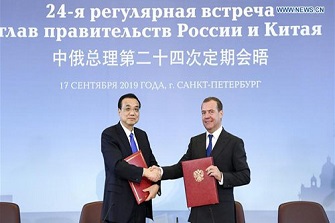
Guan Zhaoyu & Zhang Tingting:After Li’s Russia visit, ties eye new avenues
Premier Li Keqiang was on an official visit to Russia from Monday to Wednesday. On Tuesday, Li and his Russian counterpart Dmitry Medvedev co-chaired the 24th regular meeting between Chinese and Russian heads of government. Li said in an interview published in a Russian newspaper on Monday that China and Russia will raise bilateral cooperation to a higher level. Li's visit to Russia epitomizes China-Russia relations in the new era, pointing the way to the two countries' future cooperation.
2019-09-20 -
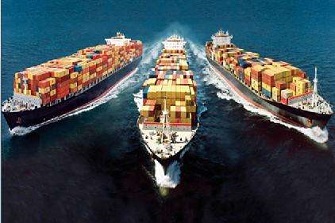
He Weiwen: Can China weather a long trade war?
A couple of good gestures from both China and the United States over the past week, along with the imminent resumption talks, have given the world stock markets a strong boost. The market regards the moves as a silver lining in the protracted trade war between the world’s two largest economies. The U.S. tariffs on Chinese goods and China’s counter-tariffs on U.S. goods have covered virtually all goods in the countries’ bilateral trade regime. Direct harm and indirect uncertainties for both economies, and even the global economy, have been developing.
2019-09-19 -
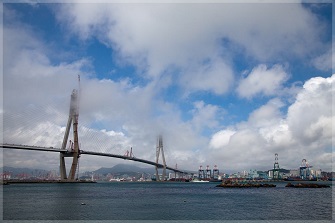
Ding Gang: The road to sustainable peace in Asia
It was around 10 pm when I found myself on a bus leaving Gimhae International Airport for downtown Busan in South Korea. The roads of the city that became famous in Asia for hosting the 2002 Asian Games, were brightly lit up. A bridge spanning the Nakdong River was festooned with colorful lights. Coming across such a site, not many would be able to dredge up the fierce war that took place there about 70 years ago.
2019-09-19 -
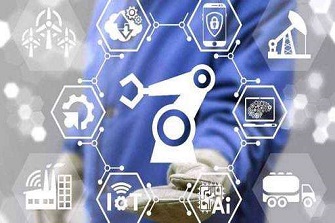
Wan Zhe: Contest of structural transformation
Root cause of the trade war lies in the discomfort caused by the structural adjustment of China and the US. Behind the Sino-US trade dispute is the contest between the structural transformation between the two countries. The root cause of the trade friction lies in the discomfort caused by the two countries' structural adjustment. The Sino-US trade war, in the short term, will be painful for both the US and China. China fully understands this. But it is working hard to survive the short-term pain and embrace the long-term benefits. After all, whoever wins this structural transformation, wins the future.
2019-09-18
























































































 京公网安备 11010802037854号
京公网安备 11010802037854号





